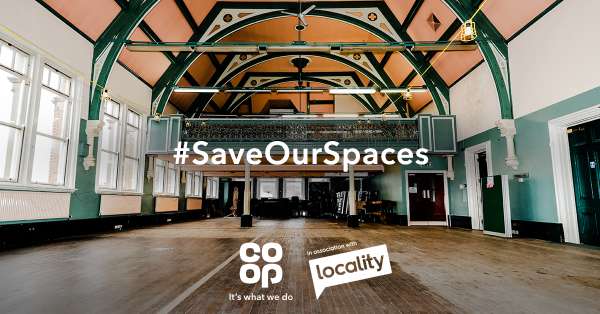Retail co-ops in the UK and abroad are increasingly concerned with research into the wellbeing of their members and employees.
Last year the Co-op Group revealed a community wellbeing index, a tool to measure wellbeing in communities throughout the UK. The index provides a snapshot of how communities score in nine key areas, such as education and skills to equality, participation and trust. It covers 28,000 communities across the country.

In June this year the Group launched an Endangered Spaces campaign to protect, support and improve 2,000 at-risk community spaces over the next three years. In partnership with Locality, the Co-op will identify the most at-risk spaces, and mobilise the necessary support to protect them.
The Co-op’s research has already found a link between improved wellbeing and areas where community spaces such as cafes, community centres and playgrounds are easy to access. Previous studies show that in some areas where there is increased access to parks and green spaces, crime rates in the town centre decrease.
Conversely, a decrease in community spaces and leads to a decrease in overall health within these communities, while crime and unemployment rates go up.
The Group’s initiatives are supporting its Co-operate 2022 plan, through which it pledges to protect community spaces, increase wellbeing and give people skills.
In the US, outdoor retail co-op REI is trying to understand the impact of spending time outdoors might have on the wellbeing of communities across the country.
In October, it donated US $150,000 to a long-term national study exploring the physical, mental, and emotional benefits of spending time outdoors, conducted by researchers at Harvard T.H. Chan School of Public Health.
REI has invested more than US $1m into research examining the link between health and nature, through its in-house philanthropy program as well as funding from the REI Foundation.
“We are at a crossroads. We know through current research that the average American spends 95% of their time inside. At the co-op, we believe the nation’s growing disconnect from nature will only exacerbate rising rates of chronic health problems,” said Marc Berejka, president of the REI Foundation.
“By supporting long-term research at Harvard, we aim to shine a light on the symbiotic relationship between health and nature. Nature is good for us, so we must be good to nature, and time outside should be part of every doctor’s toolkit.”
The study will see researchers hold a series of focus groups to understand traits and attitudes that influence individuals’ nature-seeking behaviours.
“We believe this research approach will provide evidence and support for deeper consideration of nature-based medical alternatives that complement traditional clinical healthcare and emphasize the need to pay closer attention to potential costs of our culture’s increasingly indoor lifestyle,” said Dr Jose Guillermo (Memo) Cedeño, research associate in the Department of Environmental Health at Harvard Chan School.